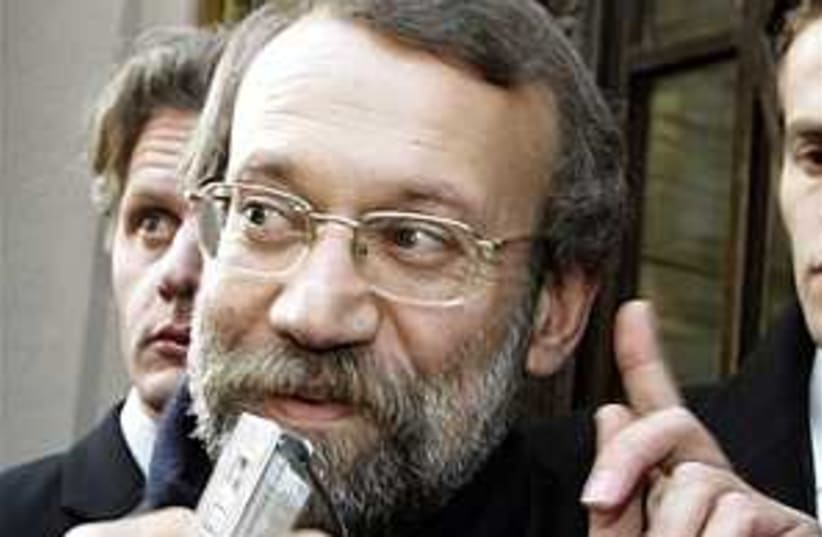| THE IRANIAN THREAT | |
| JPost.com special: news, opinion, blogs and more |
Mofaz calls for stiff sanctions on Iran
As sanctions loom, Ahmadinejad says Iran will stop enrichment if West does.


| THE IRANIAN THREAT | |
| JPost.com special: news, opinion, blogs and more |